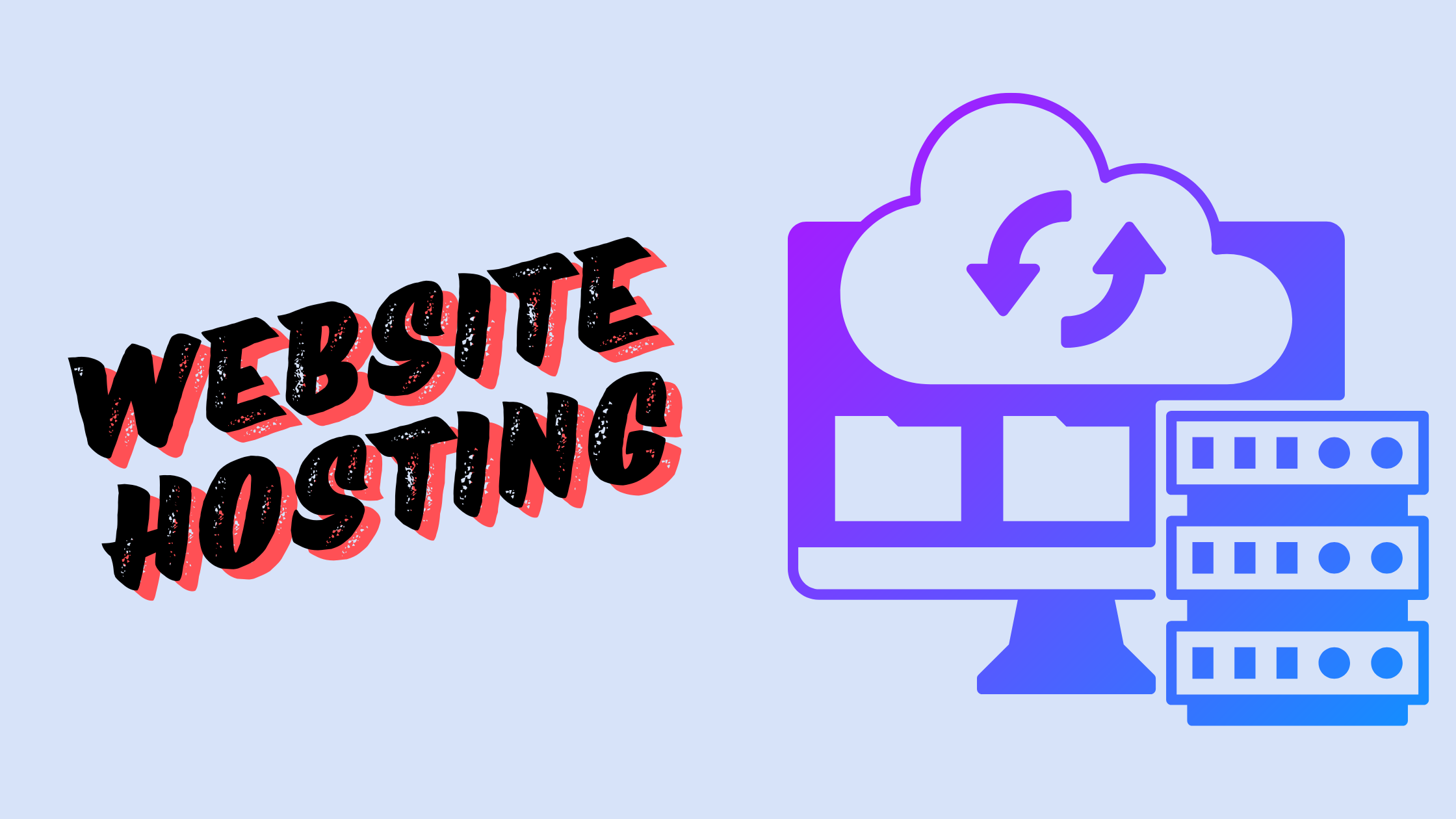Table of Contents
There’s a lot to consider when choosing the best website hosting in India to ensure your online presence is effective and sustainable. In this guide, you’ll discover vital practices that will help you maximize the benefits of free hosting services. From selecting the right provider to optimizing your website’s performance, we cover all the tips you need to enhance your experience. Get ready to transform your website without straining your budget while making informed choices that suit your unique needs.
Types of Best Website Hosting In India
While exploring best website hosting options in India, it’s important to understand the various types available to you. Below is a breakdown of the most common types:
| Type | Description |
| Shared Hosting | Multiple websites share a single server’s resources. |
| Cloud Hosting | Websites are hosted on a network of servers, ensuring reliability and scalability. |
| Website Builders | User-friendly tools allowing you to create and manage websites easily. |
| Virtual Private Server (VPS) | A simulated server environment offering more resources and control. |
| Content Management Systems (CMS) | Software platforms that help you build and manage your website content. |
Assume that each type has its distinct benefits and limitations that may suit different needs.
Shared Hosting
Website shared hosting is a popular choice among beginners due to its cost-effectiveness. It involves multiple users sharing a single server’s resources, making it affordable for those just starting out. (Choosing reputable hosting providers is a significant aspect.)
Cloud Hosting
On the other hand, cloud hosting utilizes a network of interconnected servers to deliver a more reliable service. This type of hosting allows for easy scalability, meaning you can adjust your resources as your website grows, which is ideal for fluctuating traffic levels.
Understanding cloud hosting can greatly influence how you manage your website’s performance. It offers redundancy, cutting down on downtime and ensuring your site remains online, even if one server encounters issues.
Website Builders
If you prefer a straightforward way to build your site, website builders are an excellent option. These platforms provide intuitive interfaces that allow you to design your website without technical expertise. (Picking the right builder can significantly impact your website’s appearance and functionality.)
Website builders often come with templates and drag-and-drop features, streamlining the design process. They are best for users who want to get their site up and running quickly without the need for coding skills. (Evaluating the features of different builders is paramount to finding the best fit.)
Cloud hosting, by comparison, offers a more flexible solution that can adapt to varying user demands.
Pros and Cons of Free Website Hosting
Assuming you’re considering the best website hosting, it’s vital to weigh the benefits and drawbacks before making your choice. The following table summarizes key pros and cons to help you assess whether this option suits your needs.
Pros and Cons Overview
| Pros | Cons |
| No initial cost | Limited storage and bandwidth |
| Easy to set up | Less flexibility in customization |
| Ideal for personal use | Ads displayed on your site |
| No technical skills required | Lack of customer support |
| Perfect for testing ideas | Limited SEO capabilities |
Advantages
To maximize your web presence without financial constraints, best website hosting offers numerous advantages, including no initial investment and user-friendly setup processes. This is ideal for personal projects or experimentation (evaluate if scaling up may later require a paid solution).
Disadvantages
There’s a flip side to best website hosting that you must consider, including the limitations on resources and potential issues with control and branding.
This lack of control often leads to restricted performance and scalability options, which can hinder your website’s growth. Additionally, you may encounter unwanted advertisements and a stark lack of support, affecting user experience and site credibility. For serious projects, these drawbacks can significantly impede your objectives.
Key Factors to Consider When Choosing Free Hosting
To select the right free hosting service for your needs, consider several key factors. These include uptime reliability, user interface, storage limits, bandwidth availability, and customer support. Each aspect can significantly influence your website’s performance and user experience. Ensure you assess the following:
- Uptime reliability
- User interface and ease of use
- Storage limits
- Bandwidth availability
- Customer support options
Thou must make these considerations to ensure a smooth hosting experience.
Storage Limits
For hosting your website, understanding storage limits is imperative. Many free hosting services come with restrictions on how much data you can store. Before you choose a provider, ensure that the storage space offered will accommodate your website’s files, images, and content as it grows.
Bandwidth
Bandwidth is the amount of data that is transferred between your website and its visitors. It directly affects how many users can access your site simultaneously without issues. When opting for free hosting, check the bandwidth limits to avoid slow loading times or site downtime.
A good bandwidth capacity allows your website to handle traffic spikes efficiently. If your site becomes popular quickly, you don’t want to face restrictions that could lead to a crash or a poor user experience. Evaluate your expected traffic and choose a hosting service that can accommodate your needs.
Customer Support
With any web hosting service, customer support is an important element to consider. Free hosts often provide limited support options, which can lead to frustration if you encounter issues. Ensure the hosting provider offers accessible channels for solving problems.
Storage can occasionally become a challenging area, particularly if your website grows unexpectedly. Choosing a hosting service that offers adequate customer support can help you troubleshoot storage problems effectively. You want to be able to reach out for assistance and get timely responses to help you maintain your website seamlessly.
Tips for Maximizing Your Free Hosting Experience
Your experience with best website hosting can be enhanced by following some simple tips. Make sure to:
- Choose the right provider that meets your needs.
- Utilize available features like email accounts and website builders.
- Regularly back up your data.
- Monitor website performance and downtime.
- Stay engaged with the provider’s support community.
This approach will streamline your operation and improve user experience.
Optimizing Performance
The speed and reliability of your website can significantly impact user experience. To optimize performance, consider using lightweight themes, minimizing the size of images, and leveraging browser caching. Consistent monitoring of load times and website interactions will also help identify areas for improvement.
Security Measures
Optimizing security for your best website hosting is crucial in safeguarding your data and users. Use secure passwords, enable two-factor authentication, and regularly update any software or plugins. Always consider using a secure connection (HTTPS) as an crucial step in protecting your online presence.
Measures to implement strong security protocols also include setting up regular security audits and being cautious of third-party applications and scripts you use on your site. (Making these adjustments will help you avert potential threats and vulnerabilities.)
Step-by-Step Guide to Setting Up Your Free Website
After deciding to create your free website, follow these steps to ensure a smooth setup process:
| Step | Description |
| 1. Choose a Platform | Select the best website builder suited for your needs. |
| 2. Domain Registration | Register your domain name to establish your online identity. |
| 3. Website Design | Create an appealing website layout and functionality. |
| 4. Launch Your Website | Publish your website and start sharing it with the world. |
Choosing a Platform
Clearly, selecting the right platform is crucial as it affects your website’s functionality and ease of use. Several options like WordPress, Wix, and Weebly provide unique features tailored to different users. Consider your content needs and technical skills before making your choice.
Domain Registration
To establish your online presence, registering a domain name is important. You can usually do this through your website hosting provider or a dedicated domain registrar. Pick a name that reflects your brand and is easy for visitors to remember.
A well-chosen domain name enhances your credibility and helps users easily find your website. You might want to check domain availability and consider variations if your preferred name is taken.
Website Design and Launch
Design your website to reflect your brand’s identity and engage your target audience (colors, fonts, and images play a vital role in this decision). Focus on a user-friendly layout that promotes easy navigation and accessibility.
Another aspect of launching your website involves testing it for functionality before going live. Ensure that all links work and the design is responsive across devices, as these details significantly impact user experience.
Common Mistakes to Avoid
Despite the advantages of best website hosting, many users fall into common pitfalls that can undermine their online efforts. Being aware of these mistakes can help you navigate your hosting journey more effectively, ensuring a smoother experience and better results for your website.
Ignoring Terms of Service
With the excitement of setting up your website, it’s easy to overlook the Terms of Service. However, you must take time to read these agreements, as they contain important information about usage limits, restrictions, and potential penalties for violating the platform’s rules.
Neglecting Backup Options
Common oversight among users is failing to prioritize backup options. You might assume that free hosting services automatically save your data, but this isn’t always the case.
Understanding the importance of regular backups can save you from catastrophic data loss. Free hosting services may not provide reliable backup solutions, leaving your website vulnerable. Always look for a reliable backup option or service, whether it’s a manual process or an automated one. This way, you can restore your website quickly if any issues arise, ensuring your content remains safe and your audience stays engaged.
Final Words
From above, you have learned important best practices for using best website hosting in India. By selecting the right provider, optimizing your website’s performance, and keeping backup strategies in place, you can ensure a smooth online experience. Make informed decisions based on your needs, and leverage the tools available to maximize your website’s potential without incurring costs. With these guidelines, you can effectively navigate the landscape of free hosting and establish a strong online presence.


